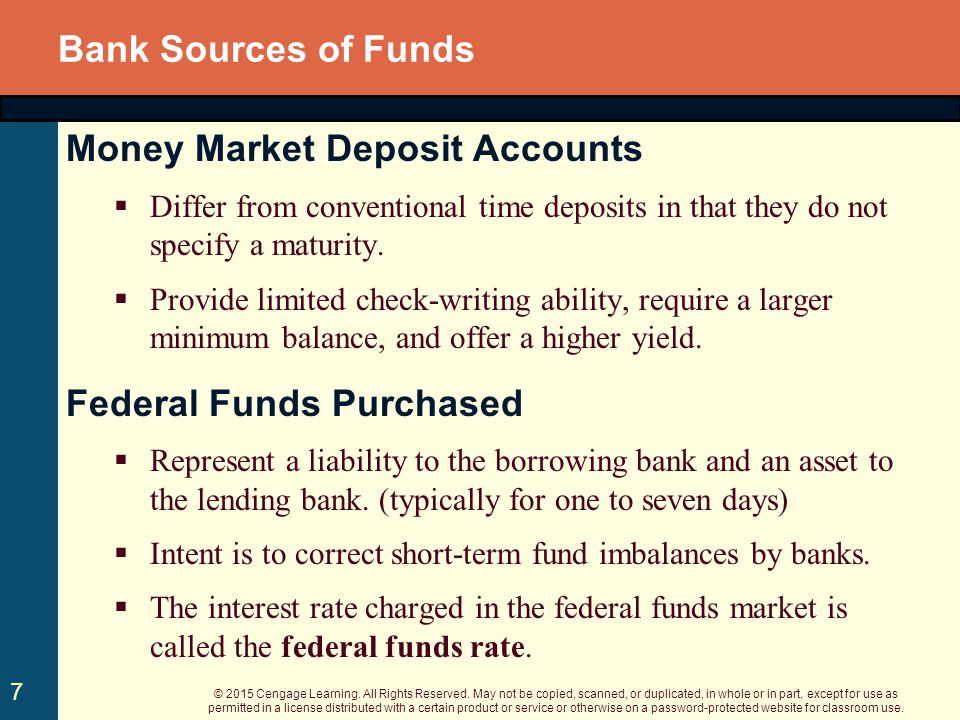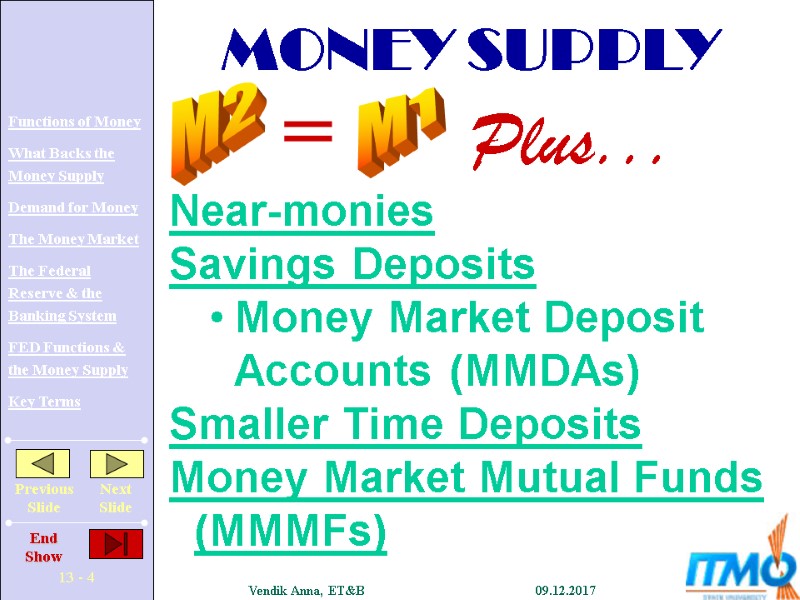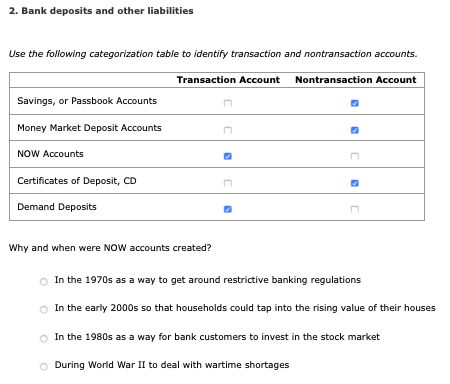Money Market Deposit Account 7,3/10 3839 votes

Retirement Sweep Deposit Account: RSDA: Sweeps cash balances into E.TRADE's affiliated banks, E.TRADE Savings Bank and E.TRADE Bank: 0.01%: FDIC-insured up to $500,000 4 check View details: JPMorgan US Government Money Market Fund, Capital Class: OGVXX: A money market mutual fund seeking high current income with liquidity and stability of principal.
Open a money market account at Regions and start earning interest at competitive rates. Visit us online today to learn more about money market rates today! 30% discount on one safe deposit box rental with an additional 10% discount if payment is set up for auto debit from a Regions account. Open a savings account or open a Certificate of Deposit (see interest rates) and start saving your money. Prepaid Card The Starbucks ® Rewards Visa ® Prepaid Card is the only reloadable prepaid card that allows you to earn Stars everywhere you shop, with no monthly, annual or reload fees. The Mega Money Market Account has no monthly maintenance fees or minimum balance requirements. The minimum opening deposit is $500, with a limit of one account per individual. There is a $3 monthly charge for paper statements, with eStatements available at no charge.
When you go to a bank to open a new account, you will have a variety of account types and features to choose from. Should you choose the basic checking option or an account that earns interest? Do you want the convenience of a bundled checking and savings account or the higher returns of a money market account?
“ It’s helpful to first understand the differences between the primary bank account types. ”
To make these decisions, it’s helpful to first understand the differences between the most common bank account types. Here are some definitions to help you navigate your banking needs:
- Checking account: A checking account offers easy access to your money for your daily transactional needs and helps keep your cash secure. Customers can typically use a debit card or checks to make purchases or pay bills. Accounts may have different options to help avoid the monthly service fee. To determine the most economical choice, compare the benefits of different checking accounts with the services you actually need.
- Savings account: A savings account allows you to accumulate interest on funds you’ve saved for future needs. Interest rates can be compounded on a daily, weekly, monthly, or annual basis. Savings accounts vary by monthly service fees, interest rates, method used to calculate interest, and minimum opening deposit. Understanding the account’s terms and benefits will allow for a more informed decision on the account best suited for your needs.
- Certificate of Deposit (CD): Certificates of deposit, or CDs, allow you to invest your money at a set interest rate for a pre-set period of time. CDs often have higher interest rates than traditional savings accounts because the money you deposit is tied up for the life of the certificate – which can range from a few months to several years. Be sure you do not need to draw on those funds before you open a CD, as early withdrawals may have financial penalties.
- Money market account: Money market accounts are similar to savings accounts, but they require you to maintain a higher balance to avoid a monthly service fee. Where savings accounts usually have a fixed interest rate, these accounts have rates that vary regularly based on money markets. Money market accounts can have tiered interest rates, providing more favorable rates based on higher balances. Some money market accounts also allow you to write checks against your funds, but on a more limited basis.
- Individual Retirement Accounts (IRAs): IRAs, or Individual Retirement Accounts, allow you to save independently for your retirement. These plans are useful if your employer doesn’t offer a 401(k) or other qualified employer sponsored retirement plan (QRP), including 403(b) and governmental 457(b), or you want to save more than your employer-sponsored plan allows. These accounts come in two types: the Traditional IRA and Roth IRA. The Roth IRA offers tax-free growth potential. Investment earnings are distributed tax-free in retirement, if the account was funded for more than five years and you are at least age 59½, or as a result of your death, disability, or using the first-time homebuyer exception. Traditional IRAs offers tax-deferred growth potential. You pay no taxes on any investment earnings until you withdraw or “distribute” the money from your account, presumably in retirement. Both types of IRAs offer investment flexibility, tax advantages, and the same contribution limits. You may want to discuss which type is best for you with your tax advisor before choosing your account.*
Once you understand the types of accounts most banks offer, you can begin to determine which option might be right for you.
Tip
Interest rates can be compounded on a daily, weekly, monthly, or annual basis.
Related topics: - Basic Finances,


Skip
Correct!
Money Market Savings. You may write checks on some money market accounts, but typically on a more limited basis than a checking account.
Incorrect.
Money Market Savings. You may write checks on some money market accounts, but typically on a more limited basis than a checking account.
Empower yourself with financial knowledge
We’re committed to helping with your financial success. Here you’ll find a wide range of helpful information, interactive tools, practical strategies, and more — all designed to help you increase your financial literacy and reach your financial goals.
Products to Consider
*Traditional IRA distributions are taxed as ordinary income. Qualified Roth IRA distributions are not subject to federal income tax provided a Roth IRA has been open for more than five years and the owner has reached age 59½ or is disabled, using the first time home-buyer exception or taken due to their death. Both may be subject to an IRS 10% additional tax on amounts subject to income tax if distributions are taken prior to age 59½.
Investment and Insurance Products are:- Not Insured by the FDIC or Any Federal Government Agency
- Not a Deposit or Other Obligation of, or Guaranteed by, the Bank or Any Bank Affiliate
- Subject to Investment Risks, Including Possible Loss of the Principal Amount Invested
Investment products and services are offered through Wells Fargo Advisors. Wells Fargo Advisors is a trade name used by Wells Fargo Clearing Services, LLC (WFCS) and Wells Fargo Advisors Financial Network, LLC, Members SIPC, separate registered broker-dealers and non-bank affiliates of Wells Fargo & Company.
Deposit products offered by Wells Fargo Bank, N.A. Member FDIC.
LRC-0221
In this article:
Savings accounts, money market accounts and certificates of deposit (CDs) are all viable options for setting aside your money and watching it grow. These three kinds of accounts share similarities, but they work differently and may serve different purposes.

Savings accounts, money market accounts and CDs typically differ in terms of their interest rates, restrictions, benefits, fees and level of risk. Furthermore, a savings account or money market account may make sense for short-term savings, while a CD is better suited for longer-term savings needs.
Interest rates for deposit accounts can go up or down based on rate-setting actions taken by the Federal Reserve. As of January 2021, Federal Reserve interest rates are historically low due to economic conditions caused by the ongoing pandemic. While low rates could make savings accounts, money market accounts and CDs less attractive to some, they remain good options for short-term or easily accessible savings.
Here, we'll review the pros and cons of these three types of accounts, and equip you with the answers you need before setting up a savings account, money market account or CD.
Savings Accounts
A savings account at a bank, credit union or other financial institution gives you a place to park money you plan to use for short-term needs, such as paying for a wedding or making a car down payment, or establishing an emergency fund you can access easily.
Money deposited in a traditional savings account earns interest, but not much. As of January 2021, the average interest rate (known as annual percentage yield, or APY) for a U.S. savings account was only 0.05% for a balance below $100,000, according to the Federal Deposit Insurance Corp. (FDIC). A yield of 0.05% would earn you just $2.50 per year on a $5,000 balance.
A high-yield savings account, often provided by online banks, can deliver an APY that's higher than a traditional savings account. But if you open a high-yield savings account at an online bank, be sure you're comfortable with the possibility that you may lack easy access to branches or ATMs.
The FDIC insures savings up to $250,000 per account holder at federally insured banks. If a bank fails and your savings account has less than $250,000 in it, the FDIC guarantees your money will be protected. If the savings account is at a credit union, the National Credit Union Administration (NCUA) insures the money under the same guidelines.
Keep in mind that a savings account is restricted to six withdrawals per month—a limit not imposed on checking accounts. If you exceed the six-withdrawal threshold, your savings account may be switched to a checking account. After the coronavirus outbreak was declared a pandemic in March 2020, the Federal Reserve temporarily suspended the six-withdrawals-per-month limit.
What to Consider When Opening a Savings Account
Here are some questions to ask when you're looking for a place to open a savings account:
- Is a minimum deposit required? In many cases, a minimum deposit is not required. But if it is, it'll likely be $25 or $50.
- What is the APY? Before opening an account, check to see what the interest rate is, and whether the rate is fixed or variable.
- What are the fees? Investigate the types of fees you may be charged. You might, for instance, be charged an account maintenance fee if your balance dips below a certain amount.
- Can I use a mobile app? Financial institutions that offer a mobile app provide an easier way to manage your savings account.
- How quickly can I get my money? Consider how long it might take to obtain your money if you can't visit a branch or ATM.
Money Market Accounts
As with a savings account, a money market account is insured by the FDIC or NCUA, and it has withdrawal limits.
However, a money market account generally offers a higher APY than a traditional savings account. That's because cash in a money market account is invested in the financial markets. As of January 2021, the average interest rate for a money market account was 0.07% for a balance below $100,000 (compared with 0.05% for a savings account).
Unlike a savings account, you may be able to write checks with a money market account.
What to Consider When Opening a Money Market Account
Questions to ask before you open a money market include:
- What is the minimum deposit? For a money market account, the minimum deposit may be higher than a savings account requires.
- What is the APY? While the interest rate for a money market account may be higher than it is for a traditional savings account, you'll still want to inquire about the APY.
- What are the fees? Look into what, if any, fees the financial institution charges. For example, you might have to pay for checks, and could be charged fees if your account balance is low. (The minimum required balance on a money market account is typically higher than with a savings account.)
- Is there a mobile app? Like with a savings account, having a mobile app you can use to conveniently check your balance and manage your money can be a big help.
- How accessible is my money? How long would it take to pull cash from your account? With a money market account, you can usually make withdrawals and write checks whenever you'd like, up to a certain number of transactions per month.
Money Market Deposit Account Features
Certificates of Deposit
CDs, available from banks and credit unions, are deposit accounts like savings and money market accounts, but there are key differences. When you purchase a CD, a minimum deposit is required. Furthermore, you're not allowed to withdraw money from a CD before a certain period of time expires, such as six months or two years. Otherwise, you'll be hit with a financial penalty.
Another disadvantage: You can't use a check, ATM or electronic transfer to access your money.
That said, CDs typically provide higher interest rates than savings accounts and sometimes money market accounts. For instance, the average APY for a six-month CD with a balance below $100,000 was 0.10% as of January 21, 2021. The average APY for a 60-month CD was 0.32%. In most cases, the interest rate for a CD doesn't change while the account is open, which is a big perk if you open it before rates are cut.
Once the CD's term ends, you can withdraw the money or roll it over to a new CD.
The FDIC and NCUA insure CDs up to the same $250,000 limit (per institution and type of account) as savings and money market accounts.
What to Consider When Opening a CD
Things to look at before you open a CD include:
- The APY: Is it competitive with other financial institutions?
- The penalty for early withdrawal: You could lose money if you make a withdrawal before the CD reaches its 'maturity' date.
- The need to quickly access money in case of an emergency: If you're nervous about tying up money in a CD, this type of account might not be the best option.

How to Choose the Right Account for Your Needs
Savings account, money market account or CD—which one should you pick?
A savings account might be a good option if you have a relatively small amount of money and aren't itching to earn a more competitive interest rate. It also might be a smart choice when you want to be able to use an ATM card or electronic transfer to access your cash.
If you've got a bigger stash of cash and you want to be able to access it easily, a money market account may be the way to go. You typically earn a higher interest rate with a money market account compared with a savings account. But you may need to stay above minimum balance requirements to avoid fees. And, just as with a savings account, the number of withdrawals per month may be limited.
To earn a potentially higher interest rate than a savings or money market account, you might park your money in a CD. But unless you keep your money in a CD for the prescribed amount of time, such as six months or 60 months, you may face a financial penalty that could erase the interest you've collected.
Alternative Places to Grow Your Money
When you're selecting a spot to put your money—particularly for the long term—a savings account, money market account or CD may not be the right option. Fortunately, alternatives are available, including a 401(k), an individual retirement account (IRA) and individual stocks.
401(k)
A 401(k) is an employer-sponsored retirement account. It's an ideal vehicle for retirement savings, with income tax reductions and potential contribution matches from employers being among the benefits. The most common investment choice available through a 401(k) is a mutual fund. Investors own shares of a mutual fund, which pools money from many investors to purchase stocks, bonds and short-term debt.
Individual Retirement Account (IRA)
An IRA allows you to set aside money for retirement up to a certain annual amount, and doesn't require any involvement from your employer. Depending on the type of IRA you open at a financial institution, you can build retirement savings on a tax-free or tax-deferred basis. Investment options available through an IRA include stocks, bonds, CDs and exchange-traded funds (ETFs).
How Do Money Market Accounts Work
Individual Stocks
Individual stocks also are in the mix of places to put your money. When you buy a share of stock, you own a slice of a company. As with any type of investment, stocks come with risks and rewards—mainly gaining or losing your money depending on the rise and fall of stock prices.
The Bottom Line
Money Market Deposit Account Definition Economics
You enjoy a wealth of options for saving your money, including savings accounts, money market accounts and CDs. When you weigh those three alternatives, keep in mind whether you'd need immediate access to your cash, how much interest you'll earn and what fees or penalties are involved. At the same time, take into account whether you need to create an emergency fund, pay off high-interest credit card debt or take care of other financial needs.